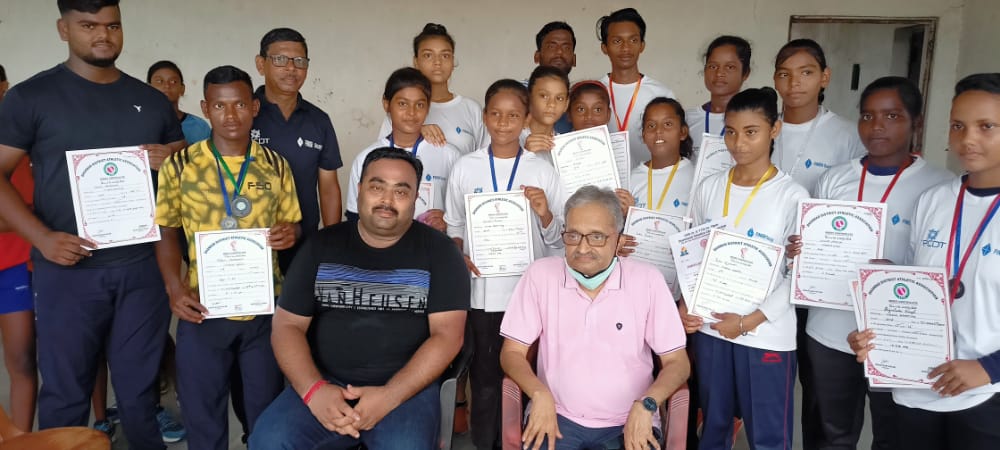
Having taken over as Managing Director of FSMC during the Covid 19 pandemic, Abhishek Chaudhuri has taken concerted steps to turn the tide and shift focus to Faecal Sludge Management (FSM) and is busy collaborating with Odisha Urban Local Bodies. He is concentrating on creating co-compost from wet faecal sludge collected at the FSTPs to make for a chemical-free world. A man on a mission, the USP of his product is that it is high on nutrients, almost 3 times higher than organic compost. He says by preventing organic waste and faecal sludge going into the dumping ground by processing it will help in reducing carbon footprint across the state and then expand this model across the country. In this candid interview with veteran journalist Chander Mahadev, he dwells at length on FSMC’s present and future plans like spearheading Swachh Sarvekshan and Janitorial Services activities. His company is expanding its footprints into Bihar and Jharkhand and he is upbeat and confident about turning his company into a responsible and profitable social enterprise.
We have gradually realized that FSM has a lot of scope in the country as the SBM Phase II has special provision for it. With so many toilets built in the country during the SBM Phase I, there certainly has to be requirement of proper FSM to address the need for safe disposal of Faecal Sludge. We have realized in Odisha that all the ULBs have their own FSTPs but the dried faecal sludge is not getting reused so we thought of offering them a solution in the form of co-composting it with organic waste.
For scaling up, FSMC is coming up with two different models – one for the urban sector and another for the rural hinterland. As FSM is equally important for both urban and rural population, there is a need to have suitable technology for both. In the urban sector, FSMC is offering the co-composting solution to the ULBs and in rural areas, FSMC offers a decentralized small, constructed wetland model based on reedbed technology where FSMC itself does the construction and then does the co-composting. FSMC not only offers product development but also marketing of the same.
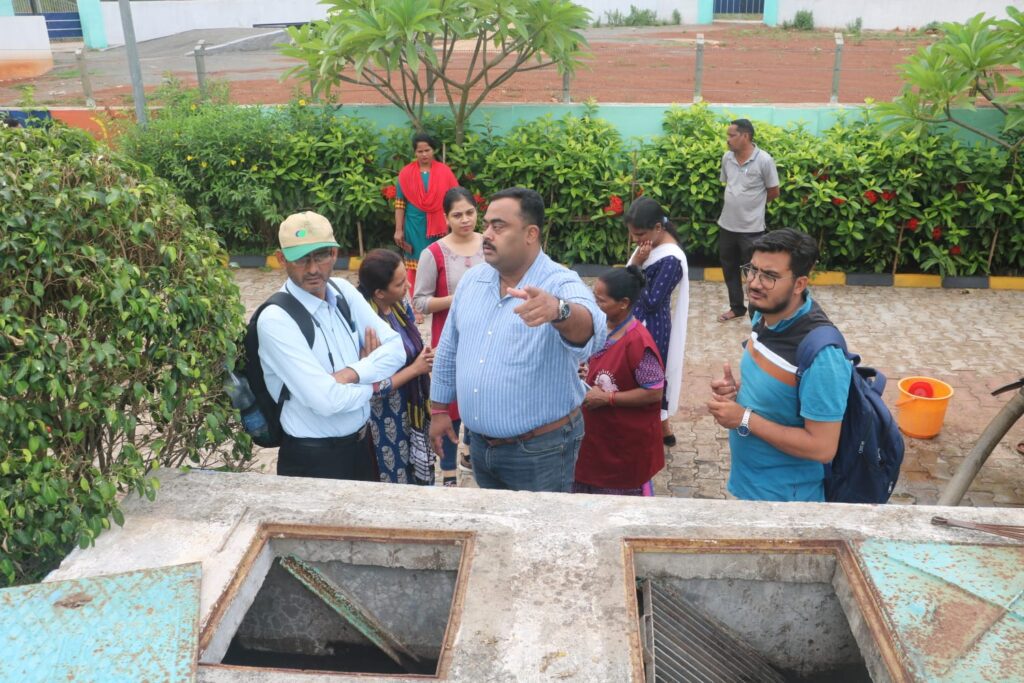
FSMC has already communicated with different farmers and farmer groups about the product. Every year BSc students from the prestigious IHE, Delft (Netherlands) come to FSMC for doing research/dissertation work on various angles of FSM. In a similar study, interviews and group discussions were done with farmer groups where the latter have acknowledged the need for such a product. They can relate that during the open defecation days, their yield used to be better due to the useful nutrients found in faecal sludge. And now, with co-compost, it will be much better as the harmful bacteria are taken care of by the composting process with the nutrients being intact in the co-compost. The farmers seem to be very happy to have such a product in the market.
The USP of the product is that it is high on nutrients, almost 3 times higher than organic compost. Preventing organic waste and faecal sludge going into the dumping ground by processing it will help in reducing the carbon footprint by – i. Treating 1000 kgs of organic waste reduces 450 kgs of carbon emission and ii. Treating 1000 kgs of faecal sludge reduces 130 kgs of carbon emission.
Presently, FSMC is working with 9 ULBs from Odisha and 2 ULBs from Bihar. There are many other ULBs that are in the pipeline but now we are going little easy to get a buy in from the respective states so that FSMC can become a technical partner for the Government so that all the ULBs and panchayats can be benefitted by FSMC’s technology. FSMC expects to produce around 400 metric tons of co-compost in the year 2023.
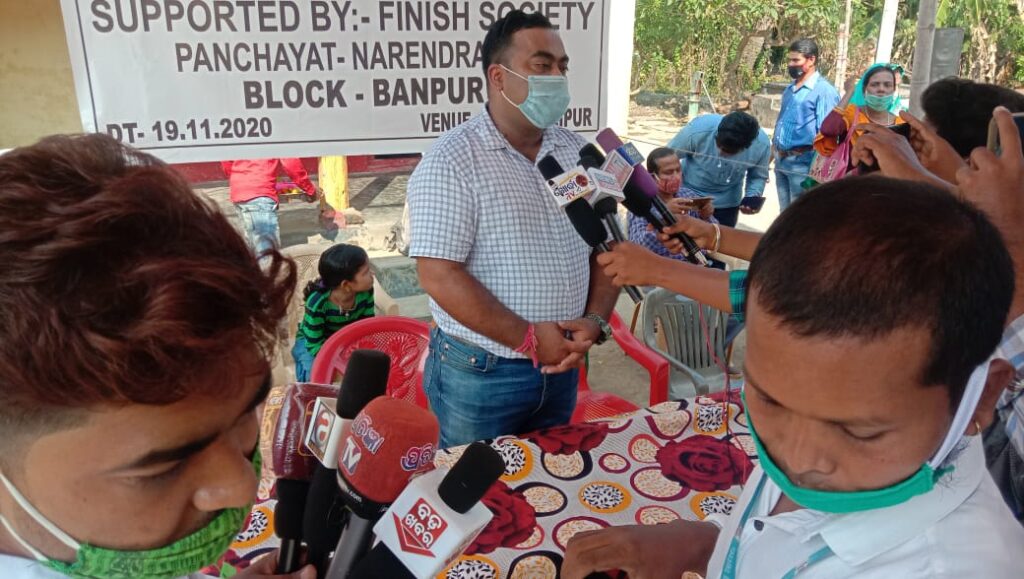
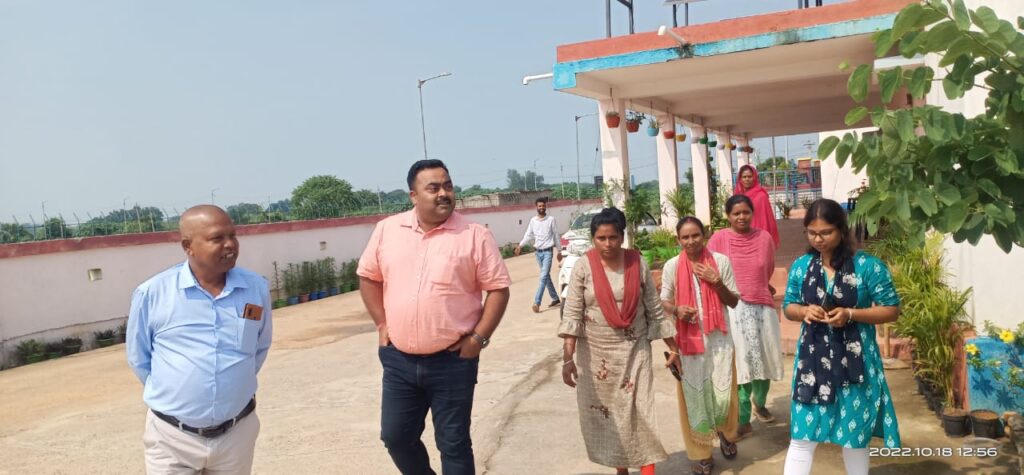
Yes, FSMC is planning to expand in Bihar and Jharkhand. In Bihar, it has already started working with 2 ULBs. FSMC is confident to convince both the state governments as FSM is the need of the hour and every state is looking for different and efficient technologies for FSM.
These are constructed wetlands with reedbed technology where there is a vertical bed with 3 chambers connected to a horizontal bed, which finally connects to a collection tank. The raw faecal sludge is poured into the vertical bed where there is a sand-gravel filter which helps the leachate to flow down the filter and pass on to the horizontal bed where it passes the gravel filter horizontally. Both the beds are planted with phragmites and canna plants that helps in treating the faecal sludge and the leachate/liquid. The leachate finally gets deposited into a collection tank after getting treated in the horizontal bed. This liquid can be used in watering the plants at the FSM site and also in the co-composting windrows.
The dried faecal sludge is taken out from the vertical bed and mixed with organic waste to produce co-compost through windrow method. The composting process and the heaping of co-compost generates the temperature required for negotiating the harmful bacteria that are found in faecal sludge.
Although, there have been some efforts in the past to monetize faecal sludge but due to huge investment in hardware/infrastructure, it couldn’t be viable. Our model is very lean cost wise and has zero investment in hardware/infrastructure. It rather leverages the government infrastructure and has a component of revenue sharing with them so that it is a win-win situation for both the government and the company (FSMC). This model focuses more on technical support and handholding of ULBs along with product development and marketing. FSMC is a social enterprise so its focus is not on earning exorbitant profits but yes, it focuses on covering its costs with a little surplus for sustainability.
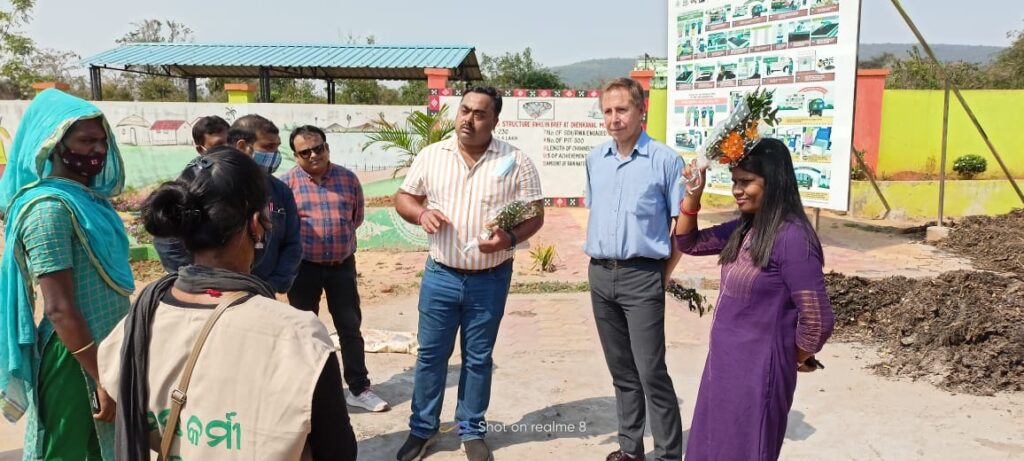
FSMC is planning to expand to the states of Odisha, Bihar and Jharkhand in the following three interventions in the present fiscal:
These are:
FSMC is focusing on developing a cadre of janitors in the cities of Bhubaneswar and Puri in Odisha along with Bodhgaya and Patna in Bihar. These janitors will be engaged in hotels, offices, apartments, schools, etc. for providing toilet cleaning services at very competitive rates.
FSMC is supporting ULBs in getting their act together by supporting their teams in organizing different activities and uploading the required documents so that they get best rankings in the Swachh Sarvekshan. We have already started working with the district of Ganjam in Odisha and very soon we are going to start in Bihar. We expect to get calls from other ULBs after seeing our performance and contribution in enhancing the ratings of the current partner ULBs. This expansion would be more of an organic one.
As mentioned earlier, we are a social enterprise which is more concerned with social impact rather than making profits but to sustain the organization, we hope to cover our costs and make some profit by the end of this year. FSMC is expecting a turnover of around 3 crore INR in this fiscal year.
©2023. fsmc.co.in All Rights Reserved.